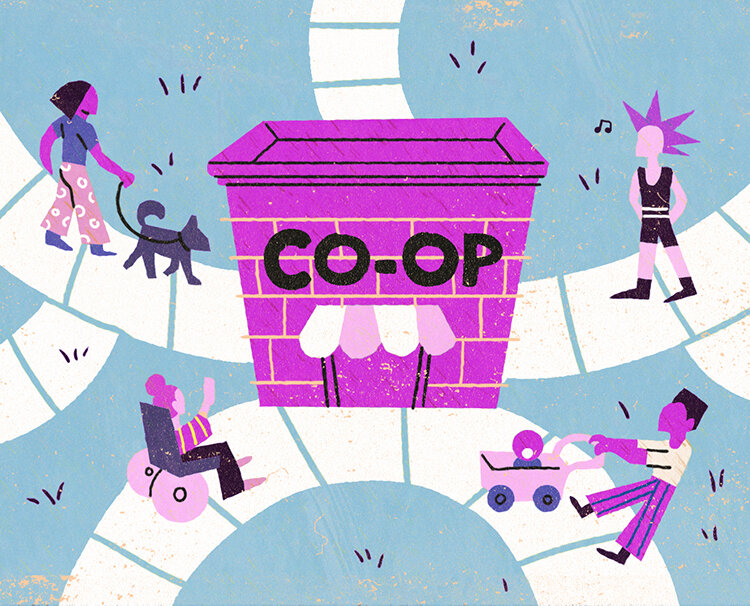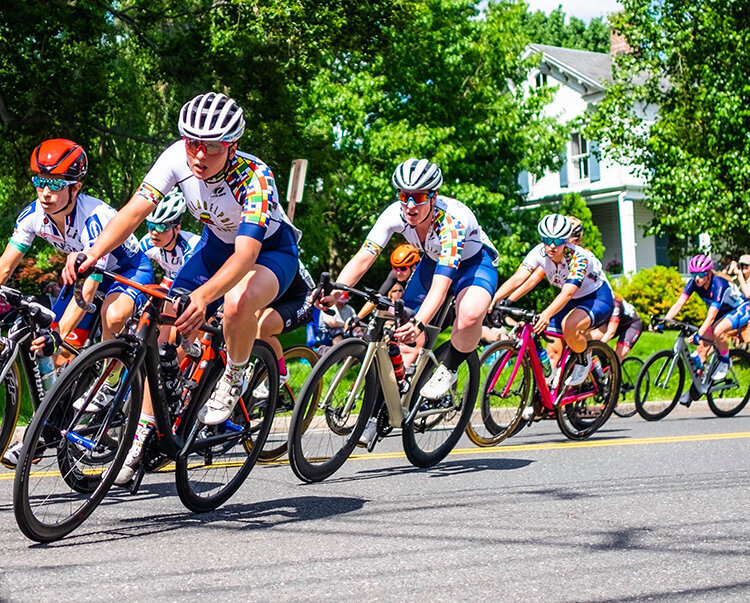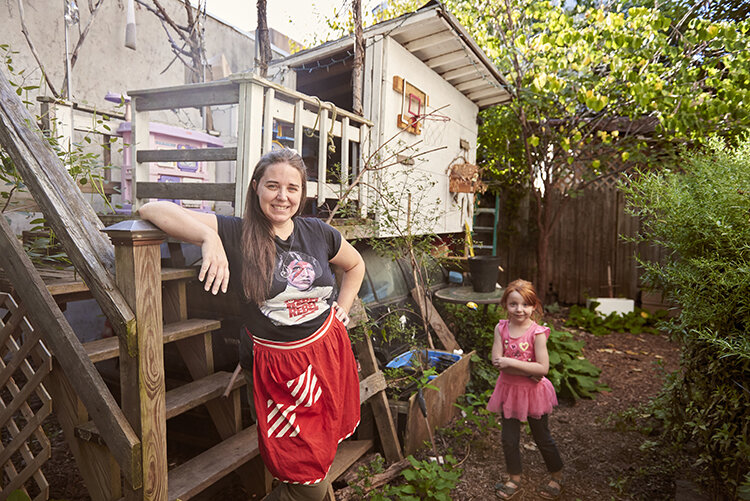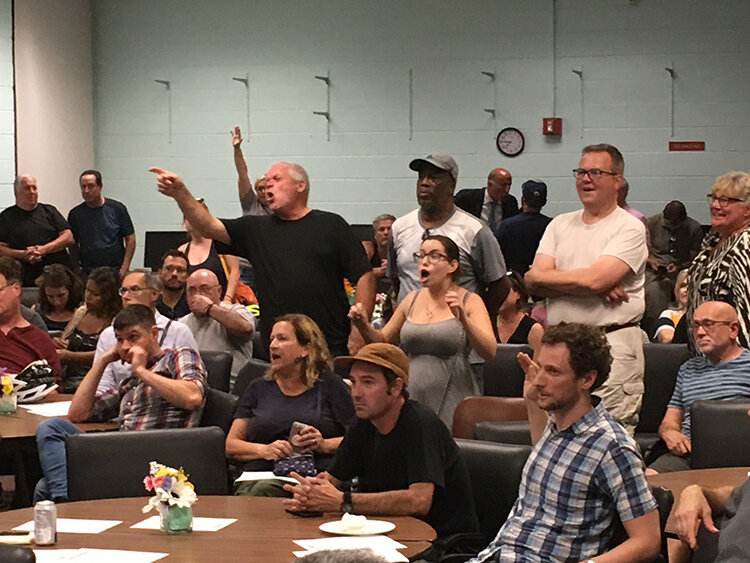illustration by Jameela Wahlgren
by Jon Roesser
In 1989, sociologist Ray Oldenburg introduced the social concept of third place, the place where you connect with your community. As the concept goes, first place is where you live, second place is where you work or go to school, and third place is what brings us all together, places like barbershops, coffee houses, libraries and parks.
A community without such third places is, actually, not really a community at all.
Food co-ops are the ne plus ultra of Oldenburg’s concept. There’s no third place like a grocery store owned by the neighborhood. You can see this easily in Philadelphia. Weavers Way itself has locations in three neighborhoods: Mt. Airy, Chestnut Hill and Ambler. There’s also venerable Mariposa Food Co-op in West Philadelphia, the brand new Kensington Community Food Co-op near Lehigh Avenue and the 82-year-old Swarthmore Co-op, one of the oldest food co-ops in the country. We’ll soon be joined by the South Philly Food Co-op, under construction at Juniper Street and Snyder Avenue.
Unlike corporate-owned-and-operated grocery stores, each co-op store has a different personality and layout, truly reflecting the communities they serve.
This month, local food co-ops like Weavers Way, where I’m the general manager, will have a day dedicated to their positive impact on the city.
On Friday, October 18, Mayor Jim Kenney will declare October 19 the first Philadelphia Grocery Co-op Day, inviting all food co-ops in the Philadelphia area to City Hall to shed light on what we do. The hope is that such recognition will push consumers toward co-ops and away from online vendors like Amazon, which make grocery shopping convenient and often cheap for consumers but fail to source food from local vendors and offer no sense of community for neighbors.
To celebrate Philadelphia Grocery Co-op Day, all co-ops in and around the city will celebrate with specials and product demos, and will offer some fun incentives to get folks to become members and learn more about co-ops in general.
A food co-op—put simply, a grocery store owned by its members—is an exercise in community collaboration. It works like this: A group of neighbors, wary of the fickle whims of grocery chains, take ownership of the situation and open their own store. The public is most welcome to shop, but this store, in the most tangible, fundamental sense, belongs to those who live locally and shop there frequently: its members.
Since it’s the community that gives birth to a food co-op, the co-op becomes a reflection of its community’s unique values and priorities. Want to get a feel for a neighborhood? Visit its co-op. Co-ops are built of community DNA. As an alternative economic model, we also tend to attract a wide array of misfits, oddballs, iconoclasts and nonconformists, and we wouldn’t want it any other way.
Co-ops are controlled locally, so they focus on supporting the local economy by serving as a critical link between the Philadelphia foodshed and values-driven consumers, for whom grocery shopping is not just about price and convenience.
It is these values-driven consumers who tend to be most supportive of their neighborhood co-op. We offer them an alternative path from the corporate grocery mainstream, one committed to shared prosperity. It’s a fairer path and, ultimately, a more sustainable one.
Co-ops shape our communities, and not just because they are great neighborhood amenities. Because we serve as a community third place, co-ops are where neighbors connect with one another, and the spirit of cooperation on which our business model is based fosters community engagement.
Engaged communities are increasingly important in a world where people feel ever more disconnected from society, in an era where technology allows people to cocoon in their homes, and when too many people foster fear and distrust of others.
Co-ops can be a powerful antidote to this isolation. It’s why every community should own its own grocery store. And why this day set aside to appreciate Philadelphia’s grocery co-ops is so exciting.
Jon Roesser is the General Manager of the Weavers Way Cooperative Association located in Mt. Airy at 559 Carpenter Lane.










Years ago I wrote a piece about WW and Mt. Airy as a model for an "ethical" neighborhood commercial district.
http://urbanplacesandspaces.blogspot.com/2013/12/food-co-ops-as-potential-anchors-of.html
And you might be interested in this piece as well, based on the sad state of the Takoma Park (Maryland) Food Co-op.
http://urbanplacesandspaces.blogspot.com/2018/03/the-lost-opportunity-of-takoma-food-co.html